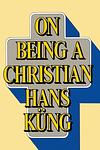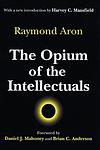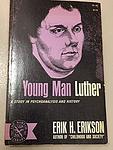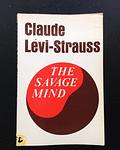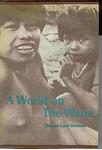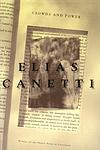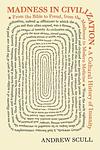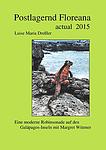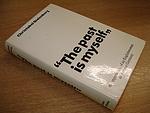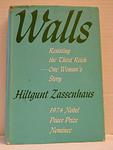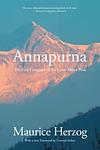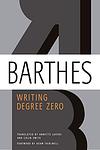The Greatest Italian, German, French "Nonfiction" Books Since 1950
Click to learn how this list is calculated.
This list represents a comprehensive and trusted collection of the greatest books. Developed through a specialized algorithm, it brings together 305 'best of' book lists to form a definitive guide to the world's most acclaimed books. For those interested in how these books are chosen, additional details can be found on the rankings page.
Genres
Countries
Date Range
Reading Statistics
Click the button below to see how many of these books you've read!
Download
If you're interested in downloading this list as a CSV file for use in a spreadsheet application, you can easily do so by clicking the button below. Please note that to ensure a manageable file size and faster download, the CSV will include details for only the first 500 books.
Download-
26. Illuminations by Walter Benjamin
"Illuminations" is a collection of essays that delve into the complex interplay between society, culture, and art. The book explores the nature of artistic expression and its role in historical contexts, examining how cultural artifacts reflect and influence the conditions of their times. It discusses the concept of the "aura" of artworks, the impact of technological reproduction on art's value and meaning, and the role of the critic in interpreting cultural texts. The work also includes a seminal essay on the philosophy of history, which critiques traditional historical narratives and argues for a more nuanced understanding of the past, informed by Marxist theory and a sensitivity to the cultural and political undercurrents that shape human experience.
The 3209th Greatest Book of All Time -
27. The Peasants Of Languedoc by Emmanuel Le Roy Ladurie
This historical study delves into the social and economic conditions of rural life in the Languedoc region of France from the 15th to the 18th centuries. It examines the impact of climate, the cultivation of vineyards, and the influence of market forces on peasant life, revealing the cyclical nature of prosperity and hardship in agrarian society. The book also explores the effects of demographic changes, including the consequences of the Black Death and other epidemics, on the structure and dynamics of peasant communities. Through meticulous archival research, the work paints a detailed picture of how these farmers adapted to changing times, and how their lives were shaped by both local conditions and broader European trends.
The 3285th Greatest Book of All Time -
28. On Being A Christian by Hans Kueng
The book in question is a comprehensive exploration of Christian faith and its relevance in the modern world. It delves into the historical and philosophical foundations of Christianity, examining its core doctrines, ethical implications, and the challenges it faces in contemporary society. The author critically assesses the role of the Church, the credibility of Christian beliefs in light of scientific progress, and the potential for dialogue with other religions. Throughout, the work emphasizes the importance of a genuine and lived faith, encouraging believers to embody the teachings of Jesus in a way that is both authentic to the Christian tradition and responsive to the needs of today's world.
The 3285th Greatest Book of All Time -
29. Combats Pour L'histoire by Lucien Febvre
"Combats Pour L'histoire" is a collection of essays by a prominent historian who was a key figure in developing the Annales School of historical thought. In this work, the author passionately argues for a new approach to studying history, one that moves beyond the traditional focus on political events and great men to include a broader analysis of social and economic factors, mentalities, and the structures that shape human activity over time. The book emphasizes the importance of interdisciplinary research, incorporating insights from geography, sociology, and anthropology to create a more nuanced and dynamic understanding of the past. The author's advocacy for this methodological shift has had a lasting impact on the field of history, encouraging generations of scholars to explore the complex interplay of forces that influence historical change.
The 3285th Greatest Book of All Time -
30. The Opium Of The Intellectuals by Raymond Aron
The book in question is a critical examination of the prevailing political ideologies and intellectual trends of the mid-20th century, particularly focusing on the seductive nature of Marxist thought among European intellectuals. The author argues that these intellectuals often embraced Marxism not for its empirical validity but as a secular religion, an "opium" that provided a comforting sense of certainty and moral superiority. The work challenges the dogmatic adherence to ideological orthodoxy and calls for a more skeptical, empirical approach to social and political analysis, advocating for the values of liberal democracy and the importance of individual freedom over utopian visions.
The 3285th Greatest Book of All Time -
31. Young Man Luther by Erik H. Erikson
This book is a psychological analysis of a seminal figure in religious history, focusing on his early life and the internal struggles that led to his revolutionary actions. The author, a prominent psychologist, applies psychoanalytic theory to understand the subject's tumultuous journey from a conflicted young man to a leader who would challenge the very foundations of the Church. The work delves into the protagonist's experiences with authority, his quest for spiritual certainty, and the personal crises that fueled his theological breakthroughs, ultimately shaping the course of Western civilization.
The 3285th Greatest Book of All Time -
32. A Comparative Study Of Total Power by Karl August Wittfogel
The book in question is a scholarly examination of the concept of 'hydraulic civilization,' a term used to describe societies that manage large-scale water projects such as irrigation and flood control. The author argues that the bureaucratic structures necessary to control water resources in arid regions historically led to the centralization of power and the development of autocratic or despotic forms of government. Through comparative analysis, the work explores how the management of water resources influenced social, economic, and political structures, and how this 'total power' shaped the civilizations in question, with a particular focus on Asia. The study delves into the relationship between natural environments, technological capabilities, and the evolution of political systems.
The 3285th Greatest Book of All Time -
33. The Savage Mind by Claude Lévi-Strauss
This book is a seminal work in the field of anthropology that explores the structures of human thought across cultures, arguing against the notion of "primitive" minds in traditional societies. The author posits that so-called "savage" or "primitive" thinking is not inferior to "civilized" thought but is, in fact, an equally complex and systematic way of understanding the world. Through a detailed analysis of totemism, myths, and rituals, the work demonstrates how indigenous and non-Western peoples categorize and make sense of their experiences with the same intellectual rigor as those in modern societies, challenging ethnocentric views of human intellectual capabilities and contributing to the broader understanding of human cognition.
The 3285th Greatest Book of All Time -
34. The Messianic Idea In Judaism, And Other Essays On Jewish Spirituality by Gershom Scholem
This book is a collection of insightful essays exploring the complex nature of Jewish mysticism and the development of the Messianic idea within the Jewish tradition. The author, a preeminent scholar of Jewish mysticism, delves into the historical and spiritual evolution of these concepts, examining their origins, their influence on Jewish thought, and their manifestations throughout Jewish history. The essays also discuss the role of Kabbalah and other mystical traditions in shaping the spiritual landscape of Judaism, offering readers a deep and nuanced understanding of the spiritual dynamics that have animated Jewish life and thought for centuries.
The 3285th Greatest Book of All Time -
35. A World On The Wane by Claude Lévi-Strauss
The book is a reflective account of an anthropologist's journey through the Amazon Basin, documenting the lives and customs of indigenous tribes at a time when their traditional ways were increasingly threatened by the encroachment of modern civilization. Through a series of vivid observations and analyses, the author explores the complex social structures, myths, and rituals of these societies, while also contemplating the impact of Western influence on their survival. The narrative serves as both a poignant chronicle of disappearing cultures and a critique of the forces of colonialism and globalization that contribute to the erosion of human diversity and heritage.
The 3285th Greatest Book of All Time -
36. Crowds And Power by Elias Canetti
This book is a seminal work of social philosophy that explores the dynamics of crowds and their influence on power structures. Delving into the psychology of mass movements and the behavior of individuals within groups, the text examines how crowds emerge, their development, and their impact on history and politics. The author draws from a wide array of disciplines, including sociology, psychology, and anthropology, to analyze the nature of power itself and the role that fear, religion, and symbolism play in the formation and manipulation of collective behavior. The work is both a theoretical study and a critique of the forces that shape human civilization and the often irrational nature of group influence.
The 3285th Greatest Book of All Time -
37. Madness And Civilization by Michel Foucault
The book is a profound and critical exploration of the history of the treatment of the mentally ill in Western society, tracing the shifting boundaries between madness and sanity from the Middle Ages to the end of the 18th century. The author argues that the way people with mental illness were treated was a reflection of the cultural, social, and intellectual mores of the time. He examines the evolution of institutions such as asylums and the role of medical and philosophical discourse in defining and managing madness, suggesting that the treatment of the mentally ill has often been a way of exerting social control rather than a genuine effort to help those suffering. The work challenges readers to reconsider the relationship between reason, unreason, and the structures of power and knowledge.
The 3285th Greatest Book of All Time -
38. Ideas and Opinions by Albert Einstein
This book is a collection of essays, letters, and speeches from a renowned physicist, offering his thoughts on a wide range of topics. It includes his insights on science, philosophy, religion, politics, peace, education, liberty, and morality. The physicist's reflections on his own scientific discoveries and the theories of other great thinkers are also discussed. This compilation provides a comprehensive view of his intellectual development and personal beliefs.
The 3418th Greatest Book of All Time -
39. Systematic Theology by Wolfhart Pannenberg
"Systematic Theology" is a comprehensive exploration of Christian doctrine from the perspective of a renowned German theologian. It delves into the nature of God, the creation of the universe, and the essence of humanity, among other topics. The author's approach is unique in that he uses historical and scientific knowledge to interpret and explain Christian beliefs, making this a significant contribution to modern theological thought.
The 3452nd Greatest Book of All Time -
40. The Social Construction Of Reality by Peter Berger, Thomas Luckmann
The book explores how individuals and groups create and maintain societal norms and values through their interactions, shaping reality through a process called social construction. It delves into the mechanisms by which knowledge and understanding of the world are collaboratively built, emphasizing the role of language and communication in this process. The authors argue that the reality perceived by a society is a complex interplay of historical, cultural, and social factors, which are continuously reconstructed and reinforced through social practices. This work provides a foundational analysis of the sociology of knowledge, examining how subjective meanings become objective elements of culture and influence human behavior and social institutions.
The 3453rd Greatest Book of All Time -
41. Postlagernd Floreana by Margret Wittmer
The book is a captivating memoir that recounts the extraordinary experiences of a woman and her family who, in the 1930s, left their conventional life behind to start anew on the remote Galápagos island of Floreana. The narrative delves into the challenges they faced, from harsh living conditions to mysterious events, including the arrival of eccentric settlers and the unexplained disappearances that later sparked rumors and intrigue. The author's personal account provides a unique glimpse into the pioneering spirit of the era and the allure of untamed nature, while also painting a vivid portrait of human resilience and the complexities of seeking paradise off the beaten path.
The 3469th Greatest Book of All Time -
42. The Courage to Be by Paul Tillich
"The Courage to Be" is a philosophical work that explores the concept of courage in the face of existential threats and anxieties. The author argues that courage is not simply a bold act in the face of physical danger, but also the strength to affirm one's own being in spite of non-being, despair, and death. The book also discusses the role of God as the ultimate source of courage and suggests that embracing our existential anxieties can lead to self-affirmation and spiritual growth.
The 3469th Greatest Book of All Time -
43. The Past Is Myself by Christabel Bielenberg
"The Past Is Myself" is a memoir of an Englishwoman who married a German lawyer and lived through the Second World War in Nazi Germany. The book provides a personal account of the challenges and moral dilemmas she faced during this tumultuous period, offering a unique perspective on life under the Third Reich. Her narrative captures the fear, courage, and resilience of ordinary people caught in the grip of a totalitarian regime, as well as her own journey of adapting to a foreign culture and confronting the horrors of war and oppression. The author's experiences highlight the complexities of identity, loyalty, and survival in a time of pervasive political terror.
The 3469th Greatest Book of All Time -
44. Walls: Resisting The Third Reich by Hiltgunt Zassenhaus
"Walls: Resisting The Third Reich" is a powerful memoir of courage and defiance, recounting the experiences of a young German woman during World War II who risked her life to oppose the Nazi regime. Working as an interpreter in the German courts, she secretly aided Scandinavian prisoners of war, passing along messages and providing them with hope and support. Her clandestine activities, carried out under the constant threat of discovery and execution, showcase the profound bravery and moral conviction required to resist oppression from within the very heart of a totalitarian state. The narrative not only captures the personal struggle against tyranny but also serves as a testament to the human spirit's capacity for resistance and solidarity in the face of overwhelming adversity.
The 3469th Greatest Book of All Time -
45. What Is Cinema? by André Bazin
"What Is Cinema?" is a collection of essays that delve into the essence and philosophy of cinema, exploring its role as a unique art form. The author, a renowned film critic and theorist, examines the evolution of film aesthetics, the influence of technology on filmmaking, and the relationship between cinema and reality. Through a series of thoughtful analyses, the book discusses the importance of realism, the art of cinematography, and the impact of individual directors on the visual and narrative aspects of film. The work is a seminal exploration of cinematic expression and continues to be influential in film studies.
The 3619th Greatest Book of All Time -
46. Annapurna by Maurice Herzog
This book recounts the incredible true story of a French expedition to the Himalayas in the early 1950s. The team, led by an experienced mountaineer, faces extreme weather conditions, challenging terrains, and life-threatening situations in their quest to conquer the Annapurna peak. Despite losing fingers and toes to frostbite, the leader becomes the first person to reach the summit of an 8,000-meter peak, marking a significant milestone in mountaineering history. The narrative is not just about the physical journey but also delves into the psychological and emotional struggles of the climbers.
The 3626th Greatest Book of All Time -
47. Writing Degree Zero by Roland Barthes
This book is a critical exploration of the nature and history of literature, focusing on the social and historical aspects of writing. It argues that language and literature are shaped by historical, social, and political forces, and that they are not neutral or natural. The author suggests that the style and form of writing are as important as the content, and he introduces the idea of "writing degree zero", which refers to a kind of writing that is stripped of style and personality, and is therefore capable of conveying truth in a direct and unmediated way.
The 3641st Greatest Book of All Time -
48. The Order of Things by Michel Foucault
"The Order of Things" is a philosophical exploration of the historical changes in the human sciences, including economics, natural history, and philology. The author delves into the concept of 'epistemes' or the unconscious rules that govern the way people perceive the world, and how these have changed over the centuries. The book challenges the idea that knowledge has progressively improved over time, instead suggesting that each era has its own unique framework for understanding and interpreting the world.
The 3646th Greatest Book of All Time -
49. The Burden of Our Time by Hannah Arendt
"The Burden of Our Time" is a profound exploration of totalitarianism and the nature of power. The author delves into the rise of authoritarian regimes in the 20th century, particularly focusing on the Nazi and Stalinist systems. The book examines the socio-political conditions that enable such regimes to seize power, and the mechanisms they use to maintain control. It also presents a philosophical analysis of the human condition, exploring themes of freedom, authority, and the public and private realms of life.
The 3671st Greatest Book of All Time -
50. The Poetics Of Space by Gaston Bachelard
"The Poetics of Space" explores the relationship between spaces and the human psyche, particularly focusing on the importance and symbolism of intimate spaces like houses, rooms, and corners. The book delves into the philosophy and psychology of architecture, using poetic imagery and phenomenology to examine how people experience and inhabit personal spaces. It argues that these spaces hold deep emotional significance and that understanding them can reveal insights about memory, imagination, and the essence of being. Through its analysis, the text invites readers to reconsider the ordinary environments of daily life as rich landscapes of poetic expression and emotional depth.
The 3678th Greatest Book of All Time
Reading Statistics
Click the button below to see how many of these books you've read!
Download
If you're interested in downloading this list as a CSV file for use in a spreadsheet application, you can easily do so by clicking the button below. Please note that to ensure a manageable file size and faster download, the CSV will include details for only the first 500 books.
Download

